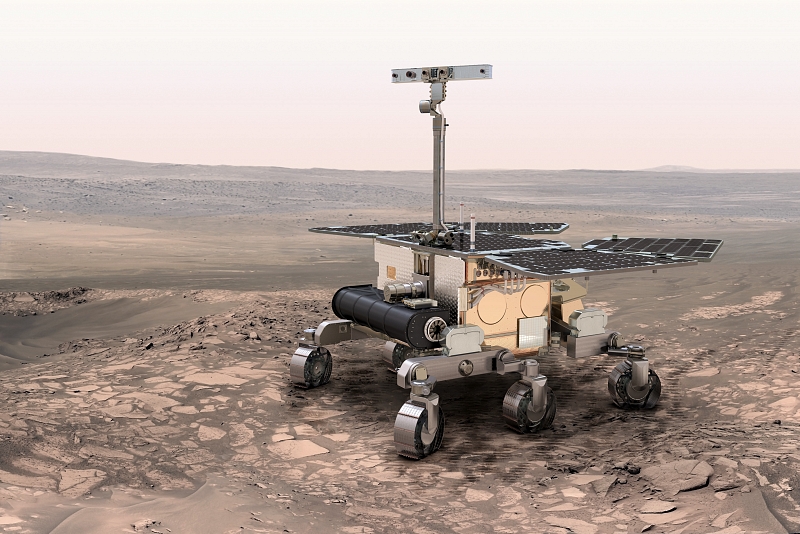The future time in the past
Half a century ago the futurists predicted only 20% of our modern life.
Unfortunately the prognosis from half a century ago turned out to be too ambitious and optimistic. We gathered the 20 main predictions and compared them to the reality. This
is what turned out:
1. Cross-planet messages - yes
Yes, nowadays it is not a problem to send out messages between planets. Furthermore, the space probes Voyager-1 and 2 are on the verge of the Solar system and are soon going to send us information about the interstellar space.
Recently, the space probe Curiosy provided us with high-quality pictures and data from Mars. What remains an issue is that we are yet to discover intelligent beings from other planets with whom we can communicate.
2. Artificial photosynthesis - no
Research in this area of studies is still in progress and has not yet succeeded in changing our lives. However, a few months ago the company "Panasonic" announced that they have made a breakthrough. They have artificially made water and oxygen from sunlight.
Overall, big advancements in this area are expected in the future.
3. Have we mastered the thermonuclear sources - no
This is in fact a type of nuclear reaction during which atomic nuclei merge to create one heavier nucleus. According to many scientists advancement in this field would mean ceasing mankind's energy issues. Unfortunately, this has not yet happened. We continue to depend on the process of splitting atomic nuclei. The incident in the Fukushima Nuclear Power Plant over a year ago and the tragedy in Chernobyl showed that we are far away
from fully controlling the thermonuclear process of gaining energy. What is more, the ecological anti-nuclear movements around the world are gaining more power. In issue 11/2012 yr. Magazine Ossem told you about the work of professor Stefan Naydenov who, according to many witnesses, had managed to come up with an inexpensive and controllable cold fusion. However, due to various reasons, his ideas never became a reality and died with the professor.
4. Plentiful energy for all kinds of needs - no
It is needless to say how far mankind is from this dream. Thousands of scientists have tried to find a solution. In Magazine Ossem we have told you about many of them, like about the Bulgarian Yul Brown. This issue is still unresolved - our main resources of energy have not changed in the past decades. Hopefully, the future will bring alternatives.
5. Complete mechanization and automation of all types of manufacturing - no
Have we reached complete automation? It is enough to take a look at the labels of almost all the goods around us - made in Asia. Because of the imbalance in the value of manpower around the world sometimes it is cheaper that a job is done by a person instead of a machine. This suppresses the automation.
6. The creation of a living cell in a lab - yes
The pioneer in this area is doctor Craig Venter whose research we presented to you in issue 10/2010 yr. of Magazine Ossem. He was the first who succeeded in artificially synthesizing a chromosome of a bacterium - the first artificial living cell with a synthetic genome. We are still in the early stages of discovering this area, and have not reached the times when synthetic biology will change our lives.

7. A variety of food products - no
When we go to the supermarket we choose from a wide range of food, unseen from past generations. However, this should not fool us as not all people enjoy such a wide range of food products. According to the last UN report on feeding, 868 million people in the world suffer from chronic hunger and in many countries kids continue to die due to this issue. Close to 30% of the world's population has suffered from hunger at some point in their lives.
8. Complete abolition of all diseases - no
This is another problem the answer to which we are going to leave for the next generations to find. Nevertheless, some diseases were wiped out, others are being better treated, but new diseases have come up too. For example, AIDS first occurred in 1981. According to the UN, the people who carry the HIV virus today are at least 23 million.
9. People will live very long lives, and will enjoy their youth many times - no
This is partially true, but unfortunately still far from the truth. For example, Bulgaria's national statistics for life expectancy in 1962 was 69,59 years, and today it is 73,60. This gives us approximately 4 more years of life which is not even close to what the futurists dreamt of.
10. The constitutions of the communist time - no
We all know how the Cold War ended - with the fall of the Berlin wall and the decay of the USSR. Put in other words - with a victory for the West that sent the communist constitutions back in history. Nowadays there are only 4 communist countries: China, Vietnam, Loas, and Cuba.
Ten more predictions wait for you in issue 1/2013 yr. of Magazine Ossem!
1. Cross-planet messages - yes
Yes, nowadays it is not a problem to send out messages between planets. Furthermore, the space probes Voyager-1 and 2 are on the verge of the Solar system and are soon going to send us information about the interstellar space.
Recently, the space probe Curiosy provided us with high-quality pictures and data from Mars. What remains an issue is that we are yet to discover intelligent beings from other planets with whom we can communicate.
2. Artificial photosynthesis - no
Research in this area of studies is still in progress and has not yet succeeded in changing our lives. However, a few months ago the company "Panasonic" announced that they have made a breakthrough. They have artificially made water and oxygen from sunlight.
Overall, big advancements in this area are expected in the future.
3. Have we mastered the thermonuclear sources - no
This is in fact a type of nuclear reaction during which atomic nuclei merge to create one heavier nucleus. According to many scientists advancement in this field would mean ceasing mankind's energy issues. Unfortunately, this has not yet happened. We continue to depend on the process of splitting atomic nuclei. The incident in the Fukushima Nuclear Power Plant over a year ago and the tragedy in Chernobyl showed that we are far away
from fully controlling the thermonuclear process of gaining energy. What is more, the ecological anti-nuclear movements around the world are gaining more power. In issue 11/2012 yr. Magazine Ossem told you about the work of professor Stefan Naydenov who, according to many witnesses, had managed to come up with an inexpensive and controllable cold fusion. However, due to various reasons, his ideas never became a reality and died with the professor.
4. Plentiful energy for all kinds of needs - no
It is needless to say how far mankind is from this dream. Thousands of scientists have tried to find a solution. In Magazine Ossem we have told you about many of them, like about the Bulgarian Yul Brown. This issue is still unresolved - our main resources of energy have not changed in the past decades. Hopefully, the future will bring alternatives.
5. Complete mechanization and automation of all types of manufacturing - no
Have we reached complete automation? It is enough to take a look at the labels of almost all the goods around us - made in Asia. Because of the imbalance in the value of manpower around the world sometimes it is cheaper that a job is done by a person instead of a machine. This suppresses the automation.
6. The creation of a living cell in a lab - yes
The pioneer in this area is doctor Craig Venter whose research we presented to you in issue 10/2010 yr. of Magazine Ossem. He was the first who succeeded in artificially synthesizing a chromosome of a bacterium - the first artificial living cell with a synthetic genome. We are still in the early stages of discovering this area, and have not reached the times when synthetic biology will change our lives.

7. A variety of food products - no
When we go to the supermarket we choose from a wide range of food, unseen from past generations. However, this should not fool us as not all people enjoy such a wide range of food products. According to the last UN report on feeding, 868 million people in the world suffer from chronic hunger and in many countries kids continue to die due to this issue. Close to 30% of the world's population has suffered from hunger at some point in their lives.
8. Complete abolition of all diseases - no
This is another problem the answer to which we are going to leave for the next generations to find. Nevertheless, some diseases were wiped out, others are being better treated, but new diseases have come up too. For example, AIDS first occurred in 1981. According to the UN, the people who carry the HIV virus today are at least 23 million.
9. People will live very long lives, and will enjoy their youth many times - no
This is partially true, but unfortunately still far from the truth. For example, Bulgaria's national statistics for life expectancy in 1962 was 69,59 years, and today it is 73,60. This gives us approximately 4 more years of life which is not even close to what the futurists dreamt of.
10. The constitutions of the communist time - no
We all know how the Cold War ended - with the fall of the Berlin wall and the decay of the USSR. Put in other words - with a victory for the West that sent the communist constitutions back in history. Nowadays there are only 4 communist countries: China, Vietnam, Loas, and Cuba.
Ten more predictions wait for you in issue 1/2013 yr. of Magazine Ossem!



